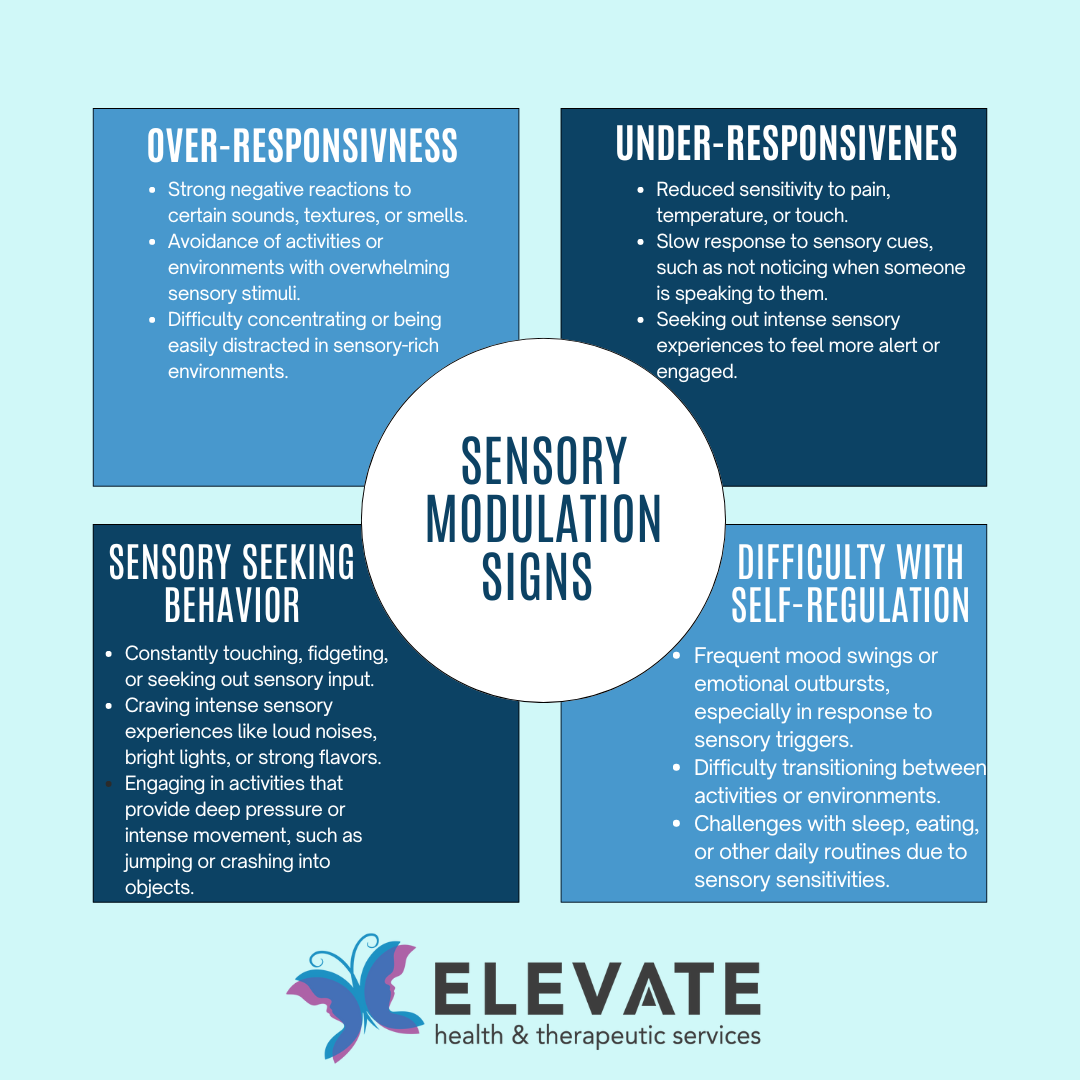Understanding Sensory Modulation
If you’ve read our blog posts from January, you might remember the term “sensory processing”, which refers to how the brain interprets and responds to sensory information from the environment and the body. Sensory processing encompasses how we detect, organize, and utilize sensory input, such as sights, sounds, textures, and smells.
In this blog post, we will explore sensory modulation, a specific aspect of sensory processing that involves regulating and responding to sensory input appropriately. Understanding the term's specific meanings and how it affects your child's daily experiences can be challenging, but it's crucial for helping them navigate their sensory world more effectively.
WHAT IS SENSORY MODULATION?
Sensory modulation refers to the body’s ability to respond to sensory stimuli with an appropriate level of response. For example, if someone greets you in a normal tone of voice, you wouldn’t shout at them in response; shouting back would be over-responding. This kind of reaction is also referred to as a graded response.
UNDERSTANDING OVER-AND UNDER-RESPONSIVENESS TO STIMULI
Sensory modulation problems occur when the body over-or under-responds to sensory stimuli. Sensory over-responsiveness is an overreaction to stimuli.
For example, a child may show excessive fear toward linear movement (gravitational insecurity) or be unable to stand the feel of certain textures against their skin (tactile defensiveness). Someone who shows underresponsiveness may appear unaware of sensory stimuli, such as a child not responding to hearing their name.
Sensory modulation problems occur when the body over- or under-responds to sensory stimuli, impacting a child's ability to participate in daily activities.
Occupational therapists specialize in addressing these challenges, using a variety of techniques to help children regulate their sensory responses and engage more effectively with their environment.
Through sensory integration therapy, children can learn to better process and respond to sensory input, improving their overall ability to participate in daily activities and enhancing their quality of life.
To read our blog post about “Understanding Sensory Processing” click the button below!
For More Information
To access further details and explore resources concerning speech, language, and hearing concerns, contact us, Elevate Health & Therapeutic Services, at (856) 492-1355 or email info@elevatehealthnj.com. Check out our social media for updates on our clinic!

